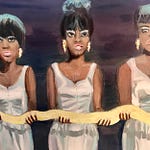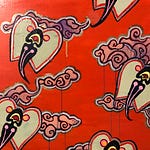Just because he plays a character that smokes bales of marijuana, is functionally illiterate, hurls patio furniture, shoots at squirrels with handguns and goes to jail all the time doesn’t mean that Robb Wells, the actor who created the role of miscreant Ricky LaFleur in the Canadian comedy series “Trailer Park Boys,” shouldn’t be lauded with the same quantities of critical respect, artistic appreciation, and golden statuettes as Royal Academy of Dramatic Arts-type British dramatic twits like Benedict Cumberbatch or Eddie Redmayne.
Nobody really realizes how tremendous and nuanced a performer Robb Wells truly is, but even in the midst of an ensemble with world-class co-stars like John Dunsworth (who plays Ricky’s nemesis, the trailer park supervisor Mr. Lahey) and Jonathan Torrens (the award-winning actor who plays the white rapper J-Roc), Ricky is still the raw heat animating the action and driving the pace of the show.
Lowbrow Canadian comedy stars are not generally considered to be in the same league as Shakespearean actors, but Robb Wells is a truly superlative artist who has so deftly embodied the role of Ricky as to indelibly establish him as a white trash archetype unto himself.
According to the BBC Teach website, there are various qualities that combine to make a great actor: Good technique and exceptional talent, the ability to transform beyond recognition, stage presence and magnetism.
“Great actors put aside their own personalities, and find humanity in even the darkest of characters. It is this portrayal of human emotion which is key to performing Shakespeare’s plays in a way that allows audiences to understand the complex language.”
While a Maritime Canadian accent is slightly easier to recognize as English than Shakespeare’s verse, Wells inhabits the character of Ricky with such wrongful joy and meaty exuberance, his sheer attack of the material (which he also co-wrote) translates into big laughs even for the lamentable idiots in an American audience (with whom TV executives feared the show wouldn’t catch on, because Canadian English is too difficult to understand, if you’re really stupid.)
Laurence Olivier, according to BBC Teach, was said to be a charismatic beacon who drew people to him. “Olivier’s magnetism was rooted in his total self-belief in his own ability to perform. This self-confidence is often what attracts audiences to an actor.”
Robb Wells, in terms of charisma, might well be described as a Las Vegas fountain that ejaculates gold rhythmically to Frank Sinatra. He is bursting with kinetic, hyperactive, bestial glee.
In short, Rob Wells naturalistic portrayal of the outrageous Ricky makes Shakespearean actor Brian Blessed in “Black Adder” look almost as strained as Jim Carrey (who possesses no charisma whatsoever - more like a whirling anti-charisma that causes the viewer to internally cringe). He’s also the most casually macho slapstick genius since Jackie Gleason.
I argue that the character of Ricky is easily as complex as that of James Gandolfini’s famously complex Tony Soprano — and that Ricky should share the title with Soprano in being what the LA Times called “the unlikeliest of all sex-symbols.”
Gandolfini won three Emmys because he made Tony Soprano - a murderous, criminal sociopath - likable, by making clear that his atrocious actions were driven by relatable motivations (family, honor, etc.)
The character of Ricky is perhaps best described as an unhinged ‘id monster’ with zero impulse control, and zero patience. He is voraciously driven by simple needs: cigarettes, weed, liquor, pepperoni, sex, and (like Soprano) the need to protect his family
(which in his case are his friends, Bubbles and Julian, his on-again-off again girlfriend Lucy and his illegitimate daughter Trinity).
He has zero self-awareness, no education, and is 100% prone to blaming other people for his own fuck-ups and shortcomings. Nothing is ever his fault. His moral approach to reality has a logic of convenience. He is not overly concerned with facts.
“It’s not a lie if you believe it’s not happening, and I do,” he says while waiting in the car while his friends commit a B&E.
He finds younger, weaker men (mainly, two hapless youths named Cory and Trevor) who admire him, and “befriends” them in order to use them as “jail cover” for crimes he commits (and blames on them), all the while larding them with constant verbal abuse.
Ricky walks up to Cory and Trevor, his doglike serfs, and announces
“Let’s go: smokes.” They immediately hand over their cigarette packs, in fealty to Ricky’s raw orangutan alpha power. Ricky takes the whole pack and gives them back one or two cigarettes.
The writing of the verbal abuse, however, is like a drill-bit in the ear socket straight into the pleasure centers of the brain.
“Hey, cock-a-doodle fucking ketchup chips!” He screams at a young man with a red mohawk, whom he intends to use for nefarious purposes. “Get in the car now!”
“You praying-Atlantis, buggy-looking fuck-twat,” he snaps at his tall, emaciated soon-to-be “son-of-law,” Jacob (an idiot who takes the place of Trevor in later seasons).
Regardless of his criminal recidivism and deeply poor hygiene due to his living in a car without any doors on it (a lifestyle resulting in a stench that makes him terribly attractive to bees) - Ricky, like Soprano in his world, is regarded by the women of the trailer park as a kind of sexual savant; most have banged it out with him at one time or another, even the senior citizens.
“I’m getting higher than one of those things that goes around the earth with the monkeys in it!” Ricky announces, with the signature gusto and enthusiasm that makes him so primordially attractive.
The physical comedy choreographed on Trailer Park Boys is worthy of Cirque de Soleil, if they only performed in junkyards and were too stoned for the trapeze.
Wells is unsurpassed as a physical comedian; he is a master of pratfalls and furniture hurling. He throws a dead Christmas tree through a trailer window with the accuracy of an Olympic javelin. He throws barbecues, Igloo coolers and satellite dishes remarkable distances. He stands on the hood of his car waving a hockey stick at a morbidly obese man who is attacking the car with an aluminum ladder. He knows exactly how to get the right BONG BONG BONG sound out of an aluminum bat when he is hitting his friend Julian with it.
When he is wounded - whether getting stung by bees, shot in a gunfight (which happens all the time), or zapped while pissing on an electric fence, Wells never “phones it in;” the agonizing pain on his face is as palpable as John Wayne’s in “The Searchers.”
Apart from the police, Ricky’s biggest enemy is the physical world, which he yells at with the kind of animist blame that would get you thrown out of a Shinto monastery.
“Fuck you, cupboards!” Ricky yells while inexplicably throwing them out of his kitchen window.
“Octopus slut!” He screams at a broken car door.
“Fucking oyster cocks!” He hollers when he is bested by a long garden hose.
Ricky’s most famous speech pattern is use of malapropisms, and his habitual conflating and/or bastardizing of recognizable idioms.
“It doesn’t take rocket appliances.”
“I’m not a pessimist, I’m an optometrist.”
“A fuckin’ TOAD-A-SO.”
“George, I want to burn the hatchet at both ends.”
“I feel like my brain is short-circulating,” he says when his daughter Trinity announces she is pregnant with the child of Jacob, one of his underlings. Murder swarms in Ricky’s mad-dog eyes.
“I gotta go,” he says, storming out to kill Jacob.
Ricky is, for all of his criminal behavior, kind to small animals — and as anyone who has ever read the screenplay manual “Save the Cat” can attest, this is enough redemption for any character, no matter how morally screwed up.
(Soprano, in the first season, was humanized by his love of ducks.)
In a scene that is a particularly clear example of Rob Wells’ tremendous emotional commitment and range, Ricky gets a goldfish named Orangie whom he absolutely adores to the point of accidentally killing it by pouring liquor shots into the bowl in an attempt to party with it. His friend Bubbles keeps covertly replacing the fish, because he is afraid of how Ricky will respond to news of Orangie’s death.
“He doesn’t know anything about death,” Bubbles tells Julian in worried tones. “He doesn’t understand that fuckin’ stuff.”
Ricky stares at Orangie’s bowl as the fish floats upside down, on top, clearly dead, with grave worry and concern. “Wake the fuck up!” He yells.
Finally, Bubbles gives up replacing the fish on a daily basis and has the corpse of Orangie mounted trophy-style on a Nova Scotia license plate.
“He’s not as active as he used to be…he’s not living, Ricky,” Bubbles says carefully.
“Ooh, I’m on a license plate,” mocks Ricky. “That’s no life.”
“I mean Orangie’s passed on. He moved on to the land of the deadies.”
Ricky inhales. His eyes widen and begin to tear up. You feel his visceral loss as his voice breaks. “What the fuck are you talking about?”
Ricky covers his eyes and bursts into heavy sobs, leaning against a car for support, as grief-stricken as any keening wife in a horrible Irish play about mining disasters. Hyperventilating, he collapses crying onto Bubble’s shoulder.
Bubbles tries to console him with an explanation of death: “Ricky, when he ceased to be, he actually turned into a different type of energy…space time continuum…there’s string theory…black holes and thermodynamics can actually fold time over space, so he’s actually still existing…”
Ricky — visibly, mortally relieved— wipes his tears away. “Man, you scared the fuck out of me! I thought he was gone!”
Ricky pants with relief, then tries to feed the mounted Orangie some of his cocktail. It’s all an emotionally believable tour-de-force with as many kinks and hairpin turns as Sir Kenneth Branagh has ever wrapped his face around. For this episode alone, Wells’ birthplace of Moncton, New Brunswick should have awarded him with a solid gold fish.
Lastly, on a personal note, I feel compelled to point out that Ricky is a fashion icon.
Ricky’s signature style: striped track pants with a polyester shirt of the urban variety: flaming dragons, bright Chinese lettering, pictures of Bruce Lee, large herringbone prints and lowriders framed by Aztec calendars — is perfectly set off by his Elvis hair and diabolical facial manscaping. It is a look as recognizable as Michael Jackson’s short black pants and white glove, and one I wish more men would adopt, as it is simultaneously garish, affordable and sporty.
In summary, I feel that the broad appeal of Ricky LaFleur is this:
Ricky embodies a world defined by the absence of death — he is a creature completely undisturbed by the fact that he is mortal and free of all existential angst.
Robb Wells’ brilliance produces the kind of elevation that all audiences, dramatic or comedic, crave like chicken chips after a particularly potent blunt. It’s high time somebody besides me noticed, and gave him a BAFTA.














Share this post